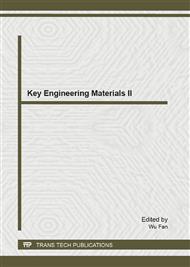p.377
p.383
p.396
p.402
p.406
p.411
p.417
p.427
p.432
Supply Chain Risk Prioritization Using a Hybrid MCDM Approach
Abstract:
In recent years, supply chains have become increasingly vulnerable to risks resulting in poor financial performance and customer service. Managing the supply chain risks is a challenging task. Resilience and responsiveness based strategies are being attempted to build a robust supply chain. To select the appropriate mitigation strategies, supply chain risks are to be prioritized. Supply chain risk prioritization is a Multi Criteria Decision Making (MCDM) problem. MCDM models for supply chain risk prioritization needs attention. In this research, a hybrid Analytic Hierarch Process (AHP) and Preference Ranking Organization METHod for Enrichment Evaluation (PROMETHEE) approach is proposed for supply chain risk prioritization. A case example of a typical tractor industry is presented to illustrate the performance of the proposed approach.
Info:
Periodical:
Pages:
406-410
Citation:
Online since:
March 2012
Authors:
Price:
Сopyright:
© 2012 Trans Tech Publications Ltd. All Rights Reserved
Share:
Citation:


